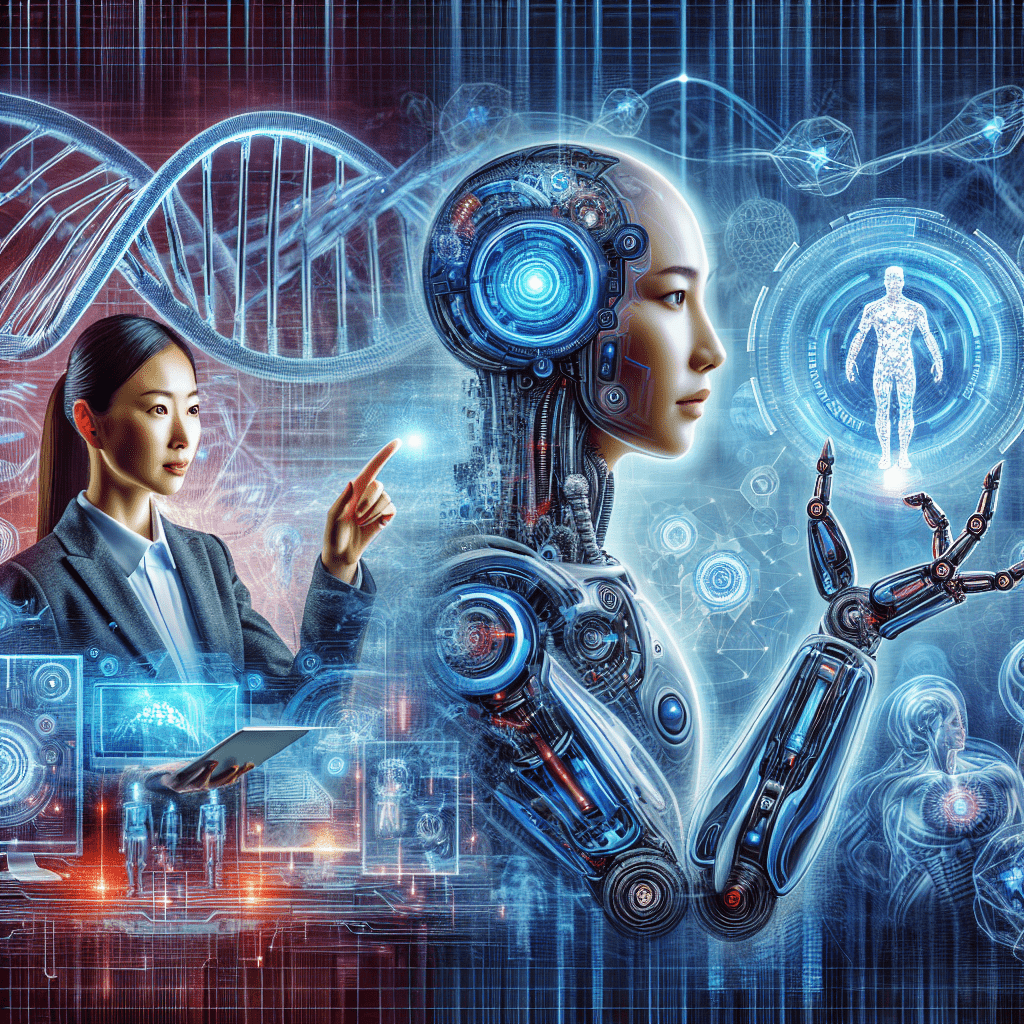Artificial Intelligence (AI) has the potential to revolutionize the way humans interact with technology. As the capabilities of intelligent machines continue to evolve, it is important to consider how we will interact with them in the future.
The Rise of AI
AI has made significant advancements in recent years, with applications ranging from self-driving cars to personalized recommendations on streaming platforms. As AI technologies become more integrated into our daily lives, it is crucial to explore how humans will interact with these intelligent machines.
Human-Machine Interaction
One of the key aspects of the future of AI is how humans will communicate with intelligent machines. While traditional interfaces such as keyboards and touchscreens have been dominant, AI has the potential to introduce new forms of interaction such as voice commands and gestures.
Voice-activated assistants like Siri and Alexa have already become commonplace, allowing users to interact with their devices through natural language. As AI becomes more sophisticated, these voice assistants will be able to understand and respond to complex queries, making human-machine interaction more intuitive and efficient.
In addition to voice commands, AI-powered chatbots are also becoming increasingly popular. These virtual assistants can help users with tasks ranging from customer service inquiries to scheduling appointments, providing a more personalized and responsive experience.
The Future of Work
AI is poised to have a major impact on the workforce, with automation and machine learning technologies changing the nature of many jobs. While some fear that AI will lead to widespread job loss, others believe that it will create new opportunities and shift the focus to more creative and strategic roles.
As AI becomes more integrated into the workplace, humans will need to adapt to working alongside intelligent machines. This will require new skills such as data analysis, problem-solving, and collaboration with AI systems. By leveraging the capabilities of intelligent machines, humans can enhance their productivity and creativity in the workplace.
Ethical Considerations
As AI technologies continue to advance, it is important to consider the ethical implications of human-machine interaction. Issues such as data privacy, bias in algorithms, and the impact of automation on jobs must be addressed to ensure that AI benefits society as a whole.
Regulations and guidelines will need to be established to govern the use of AI technologies and protect users from potential harm. Transparency and accountability will be essential to build trust in intelligent machines and ensure that they are used ethically and responsibly.
Conclusion
The future of AI holds great promise for enhancing human capabilities and improving efficiency in various industries. By considering how humans will interact with intelligent machines, we can prepare for a future where AI technologies are seamlessly integrated into our lives. With careful consideration of ethical principles and a focus on collaboration between humans and machines, we can harness the full potential of AI for the benefit of society.
FAQs
Q: Will AI replace human workers?
A: While AI has the potential to automate certain tasks, it is unlikely to entirely replace human workers. Instead, AI is more likely to augment human capabilities and create new opportunities for collaboration.
Q: How can we ensure that AI technologies are used ethically?
A: Ethical guidelines and regulations can help ensure that AI technologies are developed and deployed responsibly. Transparency, accountability, and oversight play a key role in promoting ethical use of AI.
Q: What skills will be important in a future where AI is prevalent?
A: Skills such as data analysis, critical thinking, and emotional intelligence will be increasingly valuable in a future where AI technologies play a significant role. Adaptability and a willingness to learn new technologies will also be important.
Quotes
“The development of full artificial intelligence could spell the end of the human race.” – Stephen Hawking
#Future #Humans #Interact #Intelligent #Machines


